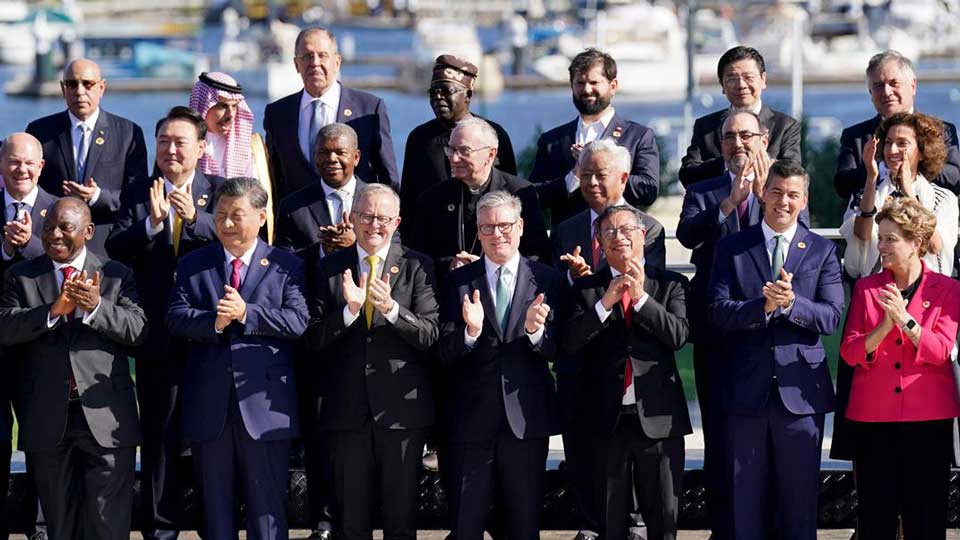
By Chris Alden & Lukas Fiala
Reading through the headlines surrounding the recent G20 summit in Brazil last week, it was hard to overlook reports of outgoing US President Biden seemingly sidelined at the photo-op. While it’s important not to overinterpret the semiotics of what US officials described as a mere “logistical” blunder, it’s equally difficult not to see the writing on the wall as America is headed towards a more inward-looking administration in the new year. But will a more isolationist US leave more space for the realization of Chinese ambitions?
It’s clear that Xi Jinping perceives the US-led international order as in decline. The appearance of “great changes unseen in a century” (百年未有的大变局) across the CPC lexicon from 2017 onwards reflects the Party leadership’s conviction that as the US is in absolute rather than relative decline, it’s China’s time to shine. While the phrase has a longer backstory in Chinese assessments of the US, in official utterances, the “great changes” discourse reflects Xi’s conviction that a transformed global order will be superior to the current one.
Close partner governments – first and foremost Russia – are seen as part of a coalition to accelerate such reforms. Yet, buy-in from the world’s majority still matters, not least because of the Global South’s voting power in international institutions, its position in choke points of key supply chains, and its potential as an intermediary and/or final market for Chinese exports. And Beijing is aware of the need to appeal to the Global South with new policy frameworks that we have covered at length here and elsewhere, including the GDI, GSI and GCI, among others.
Here, however, is where it gets more complicated. As academics have long argued, the pursuit of status – especially great power status – requires more than just an abundance of material resources such as economic and military prowess. It also necessitates a certain kind of normative appeal to convince others to follow your lead.
Whether such intersubjective understandings actually exist between China and its various international partners is hard to evaluate. China certainly seems able to build consensus views around topics of key concern to its image as a great power – such as human rights – by swaying Global South countries in favor of Chinese positions at the UN. And Beijing has also boasted about its consensus-building documents such as the FOCAC Action Plan, which supposedly demonstrate the unshakable like-mindedness between African governments and China.
But it’s tricky to differentiate between paying lip service to Chinese diplomatic language – such as the three aforementioned initiatives or the by now relatively ill-fitting but nevertheless omnipresent mantra of China as the largest developing country – and genuine and whole-hearted endorsement of Chinese ideas for the future of the international system.
Nor is it clear which criteria we should use to evaluate the support Beijing apparently enjoys amongst its panoply of strategic, comprehensive and all-weather partnerships with the Global South. Is this fundamentally about what kind of diplomatic status Beijing assigns to each country through its complex and increasingly diverse partnership framework? Or does the provision of material resources – such as financial or military aid – constitute a sufficient condition to evaluate a country’s support for Sinocentric global governance?
With Europe bogged down in Ukraine and Trump 2.0 once more casting doubt over the collective North Atlantic Alliance, Chinese strategists may well see the present moment and foreseeable future as a critical juncture to bring about even “greater” changes to the international system. Whether such an order will involve meaningful acquiescence to Chinese demands and priorities based on genuine intersubjectivity, however, remains to be seen.








